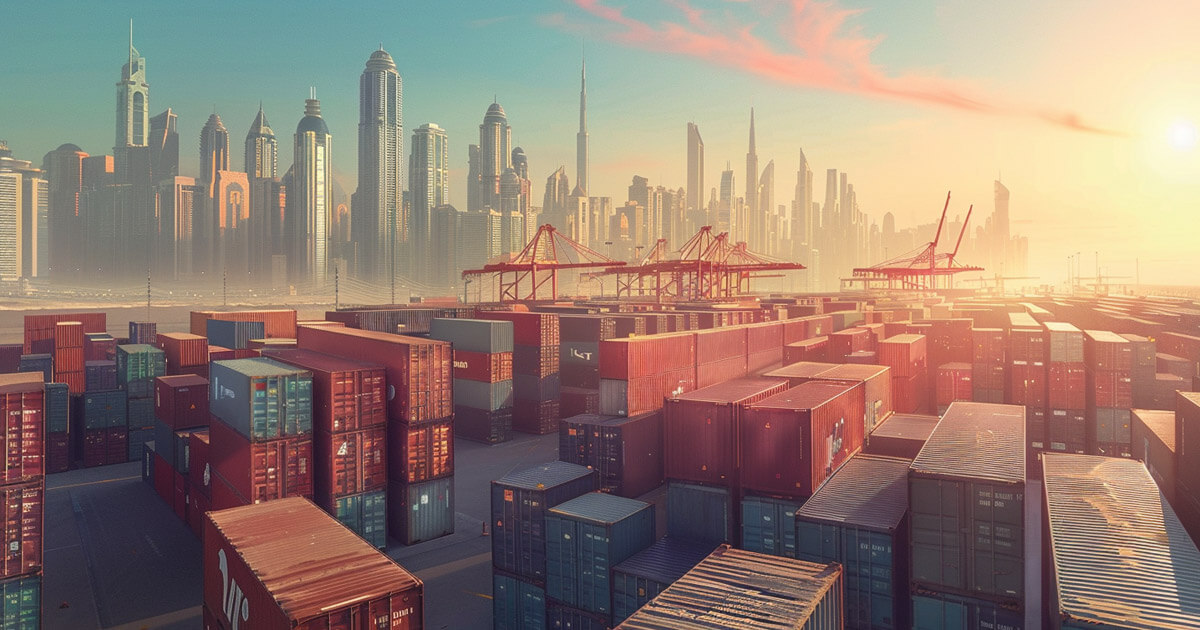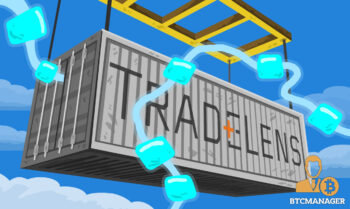
2024-7-30 06:33 |
To anyone who has read anything about technology over the last two years, the words reliability and resilience sound synonymous with the concept of blockchain.
To show you just how much this match makes sense, here are a few arguments as to why blockchain and modern logistics technology may revolutionize supply chains as we know them.
1. Trust as a bottleneckOne of the biggest challenges of modern logistics is the one of checks and balances. You see, the supply chain of old relied mostly on trust, and trust was this industry’s biggest bottleneck.
You had to trust your drivers to behave properly on the road, and one of the biggest plagues of the industry was the fact that drivers often profited from the fuel. All they had to do was misreport the amount of fuel that they needed and then siphon and sell the rest. It was quite lucrative for the drivers, but it also put you in a position where, as a company, you suffered many preventable losses.
This is no longer the case. First of all, modern fleet management systems provide more than just oversight—they literally analyze driving behavior and vehicle gas mileage in real-time. In other words, there’s no misreporting since reporting is no longer the responsibility of these drivers.
Reporting is, in general, completely automated with these new systems and with the right fleet work order template, everything is more systemic and dependable. In addition, the system now operates on a blockchain, which means that the files cannot be tampered with.
In a way, blockchain technology helps create a trustless environment in the logistics industry. This doesn’t mean that there will be no trust; it means creating an environment where trust is not necessary (you can do without it).
Now, this entire process is automatic; everything is transparent, and, most importantly, every report is completely trustworthy. Everything is as reported.
Not only is this a great safeguard but it also plays into the psychology of all the participants. People are far more honest when they know that they’ll get caught if they attempt anything.
2. Switch to electric fleetsAnother great change is the introduction of electric fleets. This change brings much greater innovation in logistics technology than one might assume at first.
First of all, electric vehicles have reached their pinnacle, and one of the aspects that are now advancing the fastest is their software. The best example of this is the Elysia battery intelligence by Fortescue, which represents a quantum leap in battery software.
These apps are far more accurate in estimating the performance and energy consumption of these electric vehicles, and they help elevate the maintenance and efficiency of your fleets quite drastically.
With more accuracy and greater insight, you’ll finally be able to solve one thing that’s seen as the biggest EV problem—range anxiety. By knowing exactly how much you can travel with a full battery, you’ll have an easier time trusting your fleet.
One challenge and technological innovation that’s also worth addressing when it comes to electric fleets is the use of scheduling software. Namely, charging is always an issue since, while fueling takes minutes, charging will take hours. This is why making a proper charging schedule might be one of the most important tasks of a modern fleet manager.
Ultimately, by understanding the health and condition of your battery better, you’ll have an easier time programming optimal charging. This way, you’ll prolong the useful life and performance of the battery, which results in a far better net result.
Remember, scheduling and maintenance all translate into the efficiency of your supply chain and logistics. With the right software and software integrations, you can make this so much easier.
3. Supply chain financeYour supply chain exists only in the broader context of your business, which means that every delivery is tightly intertwined with a specific financial process. Blockchain technology can drastically reduce the risk of fraud. This is especially important for stakeholders who want as much transparency as possible. In that way, the blockchain ecosystem has the potential to completely revolutionize finance as we know it.
Second, it’s important that you address the risk of real-time transaction sharing among all the parties involved. With the blockchain, all information is available in real-time, so there’s no need to engage in a lengthy process of data verification.
By reducing this need for more paperwork and red tape, these blockchain-based supply chains will have a simpler structure with a drastically reduced operational cost. A lot of these processes will be self-executing (something we’ll address in the next section), which will also make the processes quicker. Even outside of the cost-saving, speed is the name of the game in the supply chain industry.
While all of these advantages seem quite impressive, the difference that they’re making can best be seen in scenarios with cross-border transactions. International trade is the backbone of the modern global economy, but it’s also slow and disrupted by bureaucracy. With the help of blockchain-powered supply chains, this process can be drastically sped up.
The decentralization of the supply chain system sounded like something that would disrupt it, even slow it down, but with the help of blockchain technology, this no longer has to be the case. If the model is well-structured and the algorithm adequate, the automation of the process should be fairly simple.
4. Smart contractsWhile smart contracts predate blockchain technology, the truth is that this tech trend elevated them to a whole new level.
The very concept of a smart contract implies that you are to pre-set the conditions, and when the conditions are fulfilled, the contract is executed. The problem lies in the fact that a lot of supply chain managers feared the potential exploitation of these conditions. Since contracts were self-executing, the process would be irreversible, and you wouldn’t even notice that anything was off until it was too late.
Fortunately, with the help of blockchain technology, these fears were finally put to rest. Now, you will find yourself with an amazing autonomous tool that you can trust.
You see, the big issue with blockchain is not just in its ironclad technical properties. It’s also about the fact that it has won the battle of perception. People trust blockchain. There are other tools out there that are almost as reliable, but they’re not perceived as impenetrable, and it’s this caution that’s slowing down the adoption rate.
One more factor worth mentioning when discussing the topic of supply chain is the ability to track the whereabouts of the shipment in real-time. With blockchain, this will be made possible and it will be completely reliable. This type of transparency is unprecedented, but it is no longer seen as an extra feature – it’s an industry requirement.
Lastly, blockchain is a tool and an algorithm, which means that it scales incredibly well. It doesn’t matter how many processes it’s managing. As long as the setup is right, there should be no problem.
5. Data sharing and collaborationIn one of the earliest segments, we talked about the risk of drivers stealing fuel and taking detours, but they’re not the only party in a position to create problems and engage in corporate theft. Unscrupulous fleet managers and even company owners trying to trick their stakeholders could engage in behavior that’s just as mischievous.
With the help of blockchain technology, there’s a decentralized and distributed ledger, which means that all the parties involved have full insight into what’s going on at the given moment. It offers full transparency, and since there’s no central authority, there’s no one with their hands on the levers of power. In other words, everything is transparent, and even if it weren’t, no one would be in charge of the mechanism that would allow them to rig the system.
It’s not just about the transparency; it’s also the traceability that makes a difference. The data cannot be tampered with in the aftermath, and everything done on the ledger leaves a permanent digital footprint. In other words, diagnostics are quire conclusive and reliable.
The thing that improves the collaboration capabilities the most is the fact that the blockchain operates on standardized data formats and protocols. This means that it can be used across organizations and teams with ease. The integration of other tools is also fairly simple, even integration with existing systems.
As mentioned previously, the concept of scalability is part of the very nature of blockchain. Still, one of its biggest advantages is the fact that the system runs consistently regardless of the number of requests.
6. Blockchain increases transparency and consistency of supply chainUltimately, blockchain can make supply chains more transparent and completely eliminate the incredible need for trust to operate in this field. The best part of it all is the fact that blockchain technology improves every single part of the chain. Through a series of subtle (and not-so-subtle) improvements, the supply chain field will grow as a whole.
About The Author: Srdjan Gombar
Veteran content writer, published author, and amateur boxer. Srdjan has a Bachelor of Arts in English Language & Literature and is passionate about technology, pop culture, and self-improvement. In his free time, he reads, watches movies, and plays Super Mario Bros. with his son.origin »
Bitcoin price in Telegram @btc_price_every_hour
Advanced Technology Coin (ARC) íà Currencies.ru
|
|
























